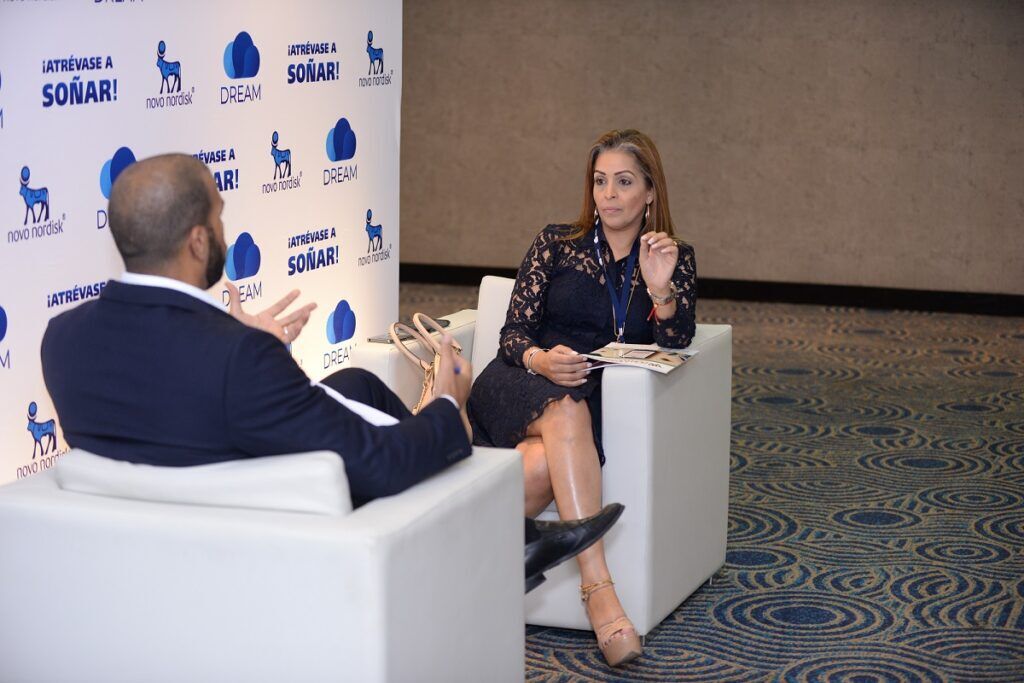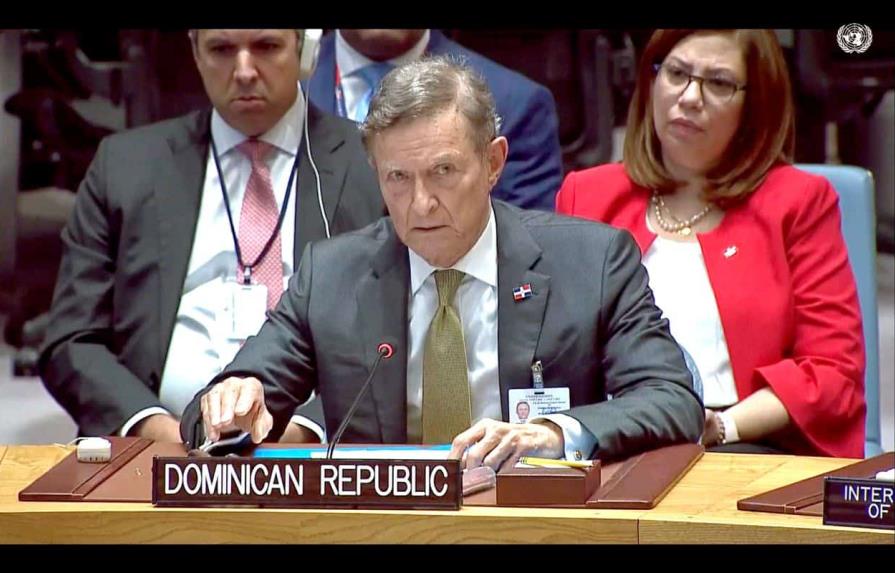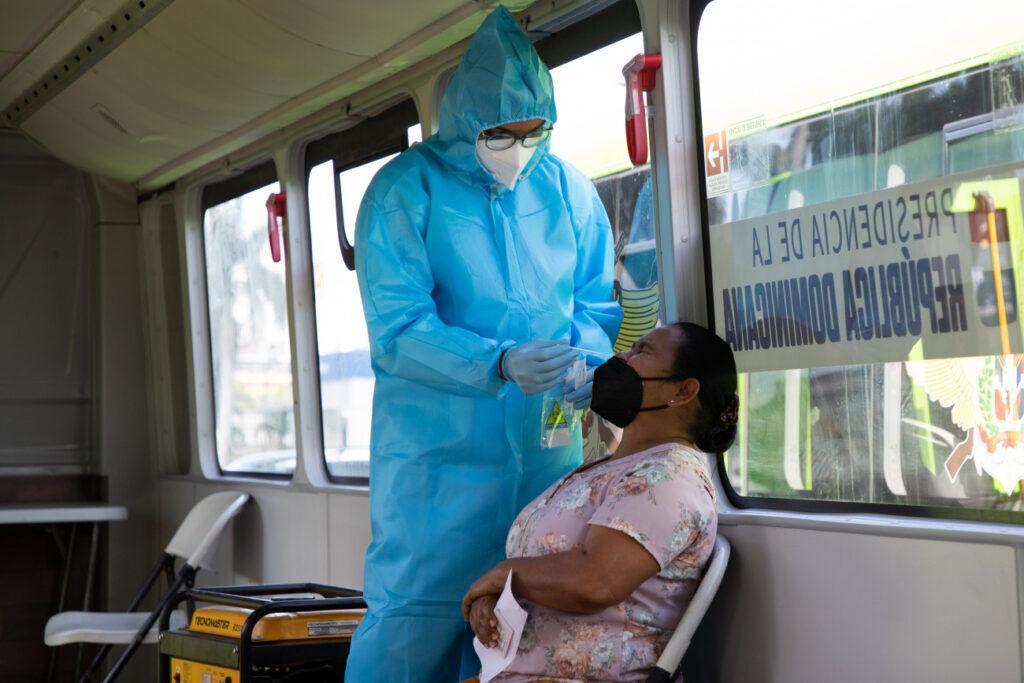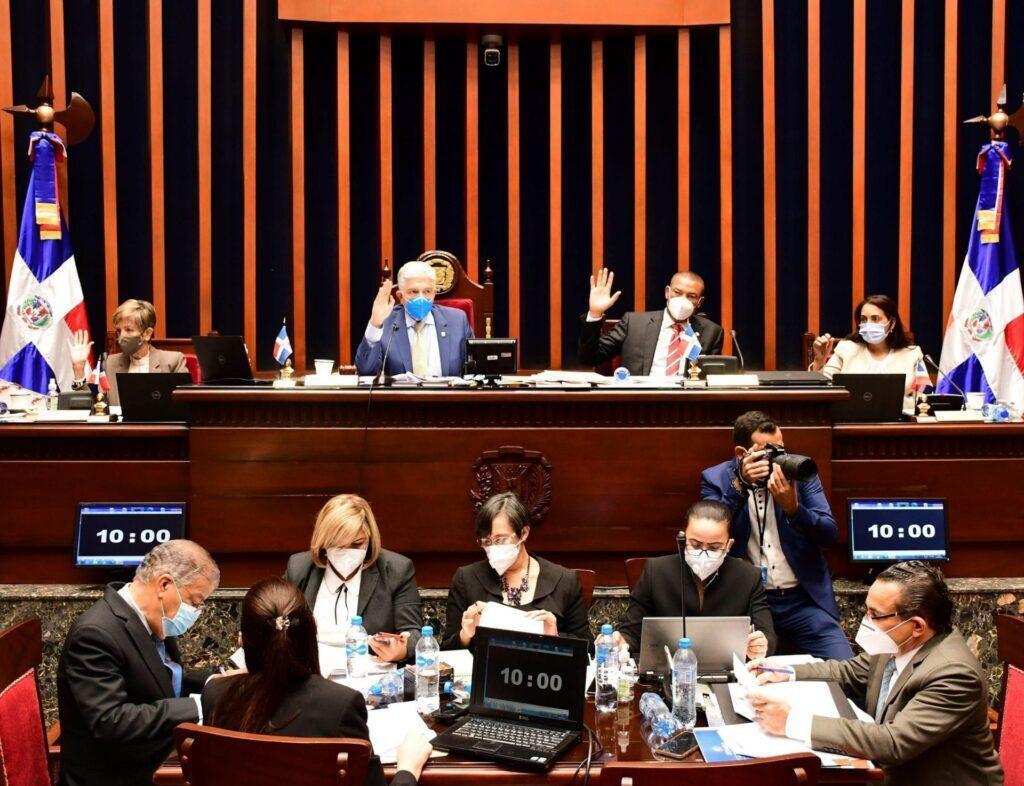Dr. Rossy Belliard: early insulinization is the biggest myth in the DR

Diabetes affects 425 million people worldwide and it is estimated that in 2045 it will affect almost 629 million, according to estimates of the International Diabetes Federation.
Most of the food you eat is broken down into sugar (also called glucose) and released into your bloodstream.
When your blood sugar goes up, it signals your pancreas to release insulin.
Insulin acts like a key to let the blood sugar into your body’s cells for use as energy.
It turns out that if you have diabetes, your body either doesn’t make enough insulin or can’t use the insulin it makes as well as it should.
To educate the Dominican population, Novo Nordisk held in Santo Domingo the Diabetes Regional Expert Annual Meeting (DREAM), an innovative scientific event for Central America and the Caribbean.
During this event, the reduction of cardiovascular risk and prevention of hypoglycemia were addressed.
The event brought together renowned endocrinologists and diabetologists from Cuba, Panama, Colombia, Mexico, and the Dominican Republic.
In order to detail the management and prevention of diabetes, dohealthwell spoke to Dr. Rossy Belliard, an endocrinologist at the Hospital Metropolitano de Santiago, in the DR.
JM: Good afternoon Dr. Belliard and thank you very much for offering your time to talk about diabetes, in the framework of this great event in Santo Domingo. First of all, if you can present, please.
Dr. Rossy Belliard: Thank you. I am an internist, endocrinologist, and I work in the Metropolitan Hospital of Santiago de los Caballeros, Dominican Republic.
JM: Dr. Belliard, what is the importance of your specialty, and has this more preventive or curative characteristic?
Dr. Rossy Belliard: I feel like half of it because if I do not do prevention, I’ll spend my whole life making corrections.
Look, prevention is the pillar of what are the cardiovascular outcomes in diabetes and obesity. Then, definitively, prevention should be the standard for us in the first visit, second visit of the patient, in the third and always.
JM: In this sense, what are the standards of preventive check-ups, and how does family history impact?
Dr. Rossy Belliard: For a person who does not have a genetic load for diabetes and has a healthy lifestyle, an annual check-up is perfect.
However, for a patient who already has prediabetes, metabolic syndrome, or dyslipidemia, the checkup will depend on how your laboratory numbers are, how your blood pressure is.
A diabetic patient persé, the minimum has to make three visits a year and everything depends on how your glycosylated hemoglobin is, if you already have kidney damage or not, your blood pressure, and how are your target organs such as the heart, kidney, and eyes.
JM: Yesterday a media group covered the press conference and I was struck by a phrase from Dr. Enrique Morales, from Mexico, when he said that “everything starts in the diet”. What do you mean?
Dr. Rossy Belliard: Look at what is happening with food. Right now, you are consuming a lot more trans fats, a lot more refined carbohydrates and that’s what impacts your blood sugar.
The more fats and more simple and refined carbohydrates we are ingesting, the more risk of obesity and diabetes.
Obviously, when you start to make a prevention in what is the food part and you have won the first part of the battle.
JM: Between 80 and 90% of that battle, could we say?
Dr. Rossy Belliard: I would say 80% to leave what corresponds to the exercise, and of course, the lifestyle of the patient.
I handle the percentages literally according to the thinking and habits of each patient. You have to see how a human being thinks.
It is ideal to tell people that 90% of the treatment is a diet if it is a patient who has a disability to exercise because we must insist more on this.
Every diabetic patient needs to be told that you say ‘the first thing is food, now exercise is as basic and fundamental as that’.
The goals are totally different based on sex, age, and whether the person has morbidities. I work in a personalized way and based on the mentality of the patient.
A patient who has a certain disability, who has osteoarthritis of the knee, who has hip arthrosis, to give you two examples, you can not tell him that 30% or 40% is exercise.
In those cases, you have to find the way and the turn to convince the patient to improve their lifestyle.
JM: In this case, apply low-impact sports, such as swimming, so as not to stress the knees.
Dr. Rossy Belliard: Right. That’s it.
JM: What is the biggest myth in our country regarding diabetes?
Dr. Rossy Belliard: The biggest myth we have is early insulinization.
The patient understands that when you indicate insulin it is because it is already “premortem”, predialysis or pre-infarct.
Break that inertia that the person understands that insulin will be indicated when needed and not when you have some complications, is the biggest myth.
I feel that it is the first thing that has to be unblocked in the population.
JM: Can this lead to other problems?
Dr. Rossy Belliard: You know what happens, at that time when you used porcine and bovine insulins, people panicked you, and they were very variable insulins with a high risk of hypoglycemia.
Also, it was not standardized what was the control of carbohydrates, it was not known how it was absorbed, nor the absorption profile of food per minute, per time.
The food part is like that. Now, when we make the diagnosis of diabetes there is already a 50% loss of pancreas function and at 10 years you can lose up to 50% more.
It is likely that at that time they need to initiate a dose of insulin.
So, the biggest myth that we have in early insulin, the patient does not accept it initially.
JM: You can give us details of the types of responsibility of diabetes, which transcends the individual and is also social and governmental.
Dr. Rossy Belliard: The individual responsibility is that you take control of your life and it is our duty to explain to the patient and to know that he is solely responsible for his health and his illness lies in himself.
Of course, there is a family responsibility. If it is the man, the woman has to be co-responsible with the food, with the lifestyle, stimulate the exercise.
If it is with the children, the parents have to take responsibility for favoring their children with diabetes or better prevent it.
On the other hand, there is diabetes education of the necessary devices and insulin.
There is a country role, of course, government, which is to promote the availability of drugs in a massive way.
A neighborhood board, for example, should not only influence sports, but it is also a means to educate.
JM: During the course of your career, has there been progressivity for better or worse in terms of the incidence of diabetes in our country?
Dr. Rossy Belliard: The incidence goes for the worse. The percentage of us is very high compared to other societies.
Well, with the study of Africa, what is the only one that we have, the incidence of us is super high, it is impressive, it is shocking, and it has a lot to do with our eating habits.
Remember that in our country what is eaten is a lot of fat, many fried foods, what we call ‘frying’.
JM: And at night, right? Many carbohydrates at night, when leaving a party or social activity, for example.
Dr. Rossy Belliard: This is the case, especially social or family activities.
As I tell my patients: “Gentlemen, nobody invites you to eat salad here” (laughs). So, I try to educate my patients about the invitations.
I tell them to go out with their food from home so they do not have to eat out. You have to educate a lot.
JM: Another thing that Dominicans have is to pressure others.
For example, if in a social activity there are healthy options, the same people say to you, ‘and you are going to eat salad, something happens to you’? There is a social pressure that makes seeing healthy options as something wrong.
Dr. Rossy Belliard: Regardless of the pressure that other people can exert. You have to know how to choose. It is addictive!
I say that you have to look for a balance, balance is everything.
JM: Dr. Belliard, to end up giving us your opinion on the importance of this event that among other things seeks to massify the knowledge regarding the prevention of diabetes.
Dr. Rossy Belliard: The most important thing is when a pharmacist empowered her product, but at the same time that empowerment carries responsibility for continuing medical education.
There are other pharmacists who want the indications without educating us. The doctor needs to be educated.
The more you build you will have more tools to make your patient go much better.
JM: Thank you very much, Dr. Belliard. It has been a pleasure to be able to do this interview and your knowledge will help us to disseminate updated information on the management and prevention of diabetes, as well as demystify some things.
Dr. Rossy Belliard: Thanks also to you for making this platform available to us.






